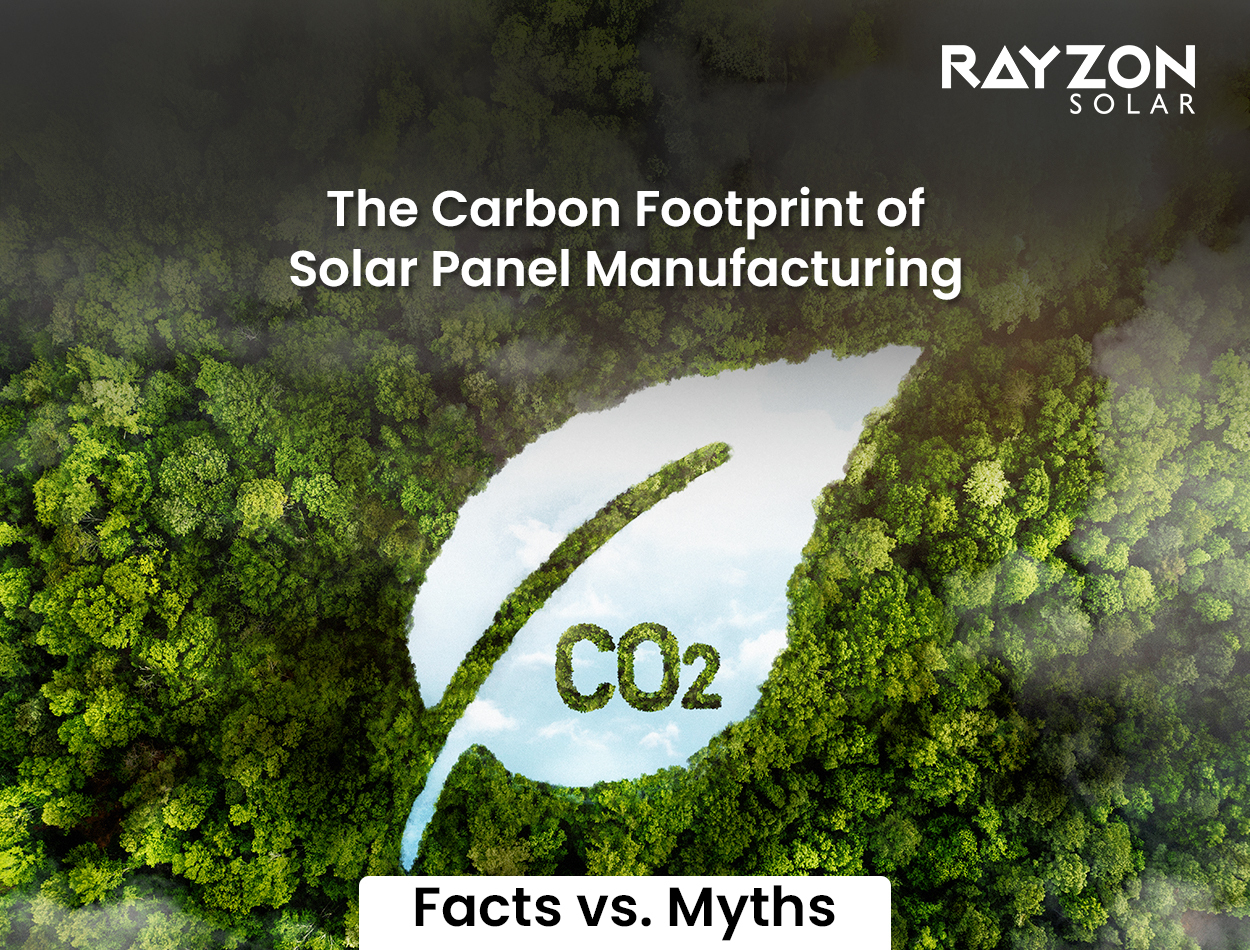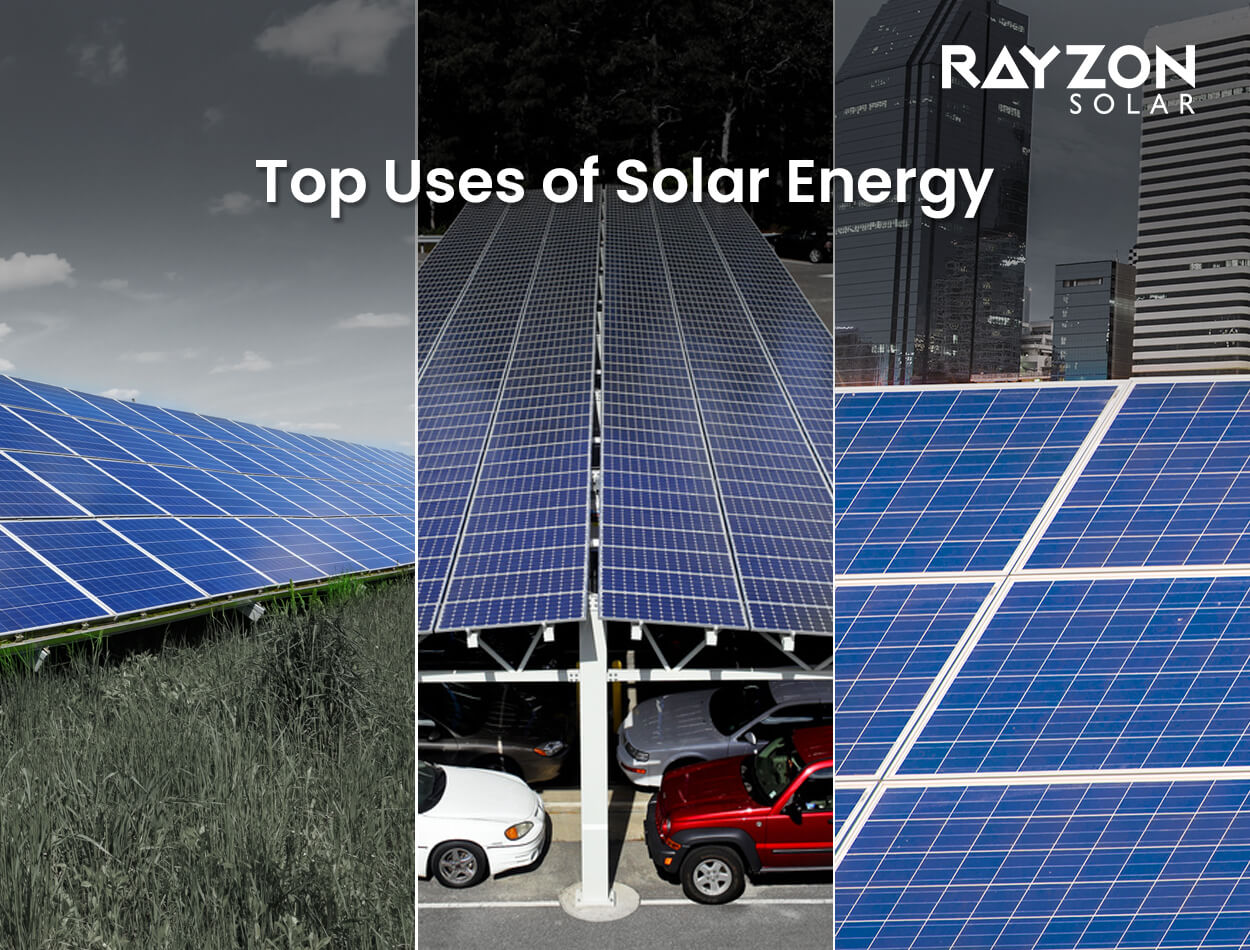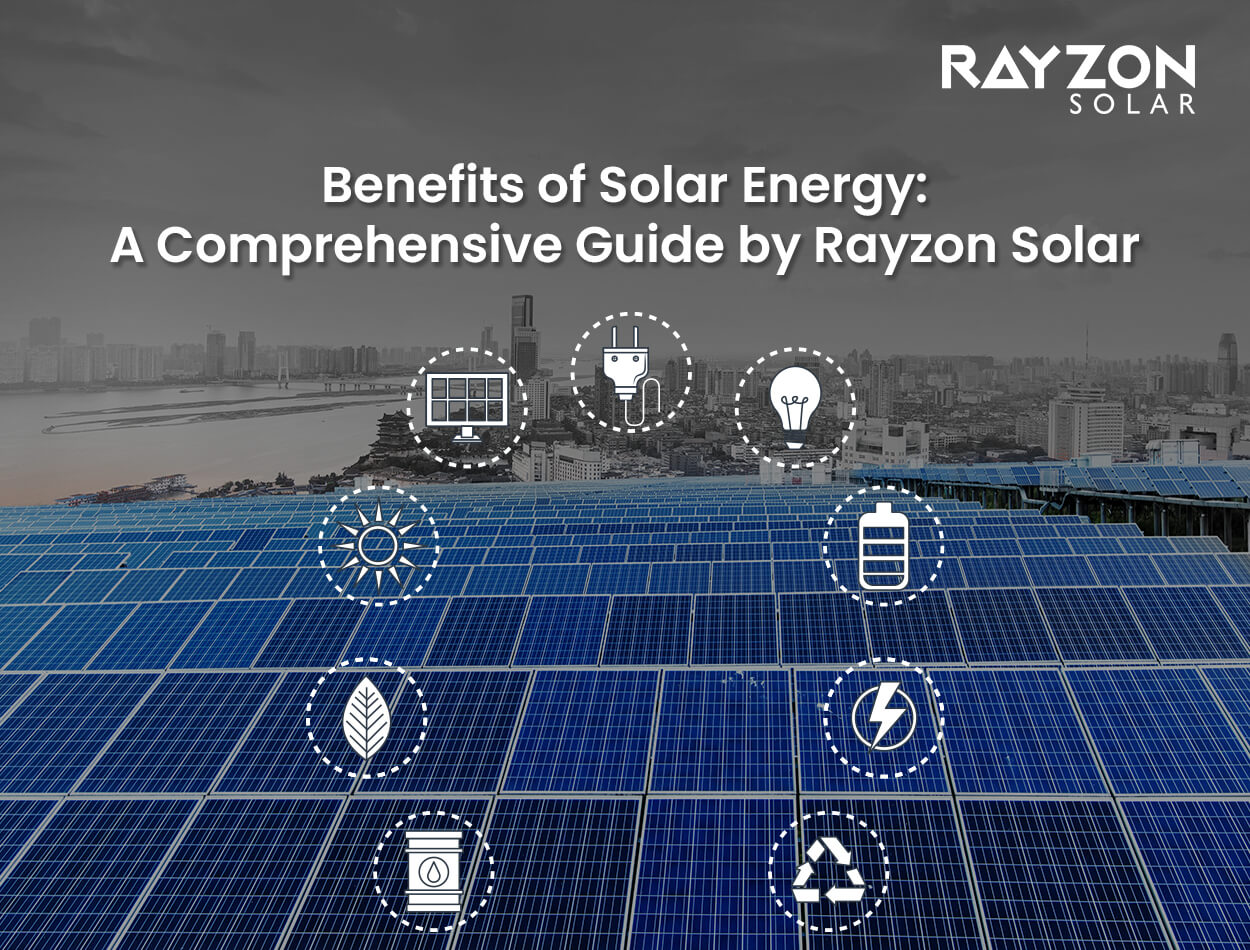
The Carbon Footprint of Solar Panel Manufacturing: Facts vs. Myths
Solar energy has long been hailed as a sustainable solution for reducing greenhouse gas emissions and combating climate change. However, questions often arise about the environmental impact of solar panel manufacturing. Is the process as green as the product itself? This blog delves into the myths and facts surrounding the carbon footprint of solar panel production, exploring the role of Rayzon Solar in fostering a more sustainable future.
Understanding Solar Panel Manufacturing
Solar panels are primarily made from silicon, a material derived from quartz. The manufacturing process involves several stages:
- Mining and Refining Silicon: Quartz is mined and processed into high-purity silicon. This stage often raises concerns due to its energy demands. However, innovations in mining and refining techniques, such as utilizing renewable energy sources, are making this step more sustainable.
- Wafer Production: The silicon is sliced into thin wafers. Rayzon Solar employs precision-driven machinery to minimize material waste during this process.
- Cell Assembly: Wafers are processed into photovoltaic (PV) cells using chemical treatments and advanced equipment.
- Panel Assembly: Cells are combined into modules and framed to create durable, efficient solar panels ready for installation.
Each stage requires energy, which contributes to the carbon footprint of the final product. However, advancements in manufacturing techniques, like those adopted by Rayzon Solar, significantly minimize this environmental impact.
Myth 1: Solar Panel Manufacturing Emits More Carbon Than It Saves
Fact: Solar panels offset their manufacturing emissions within 1-3 years of operation. Over a 25-year lifespan, they generate clean energy with minimal environmental impact.
Rayzon Solar’s commitment to efficiency ensures that its high-efficiency PV modules, such as the Rayzon Solar 210R 625WP, maximize energy output, reducing the payback period even further. For instance, installing Rayzon Solar’s panels on a residential or commercial rooftop can lead to energy savings of over 80% annually, ensuring both economic and environmental benefits.
Myth 2: Solar Panels Can’t Be Recycled
Fact: Recycling technologies for solar panels are evolving rapidly. Modern recycling processes recover up to 95% of the materials used, including glass, silicon, and metals.
Rayzon Solar actively promotes sustainable practices by partnering with recycling initiatives, ensuring its panels contribute to a circular economy. Learn more about the solar panel recycling process.
Why Recycling Is Critical
As solar adoption grows globally, managing end-of-life panels responsibly becomes crucial. Recycling not only prevents waste but also reduces the demand for raw materials, further minimizing the environmental impact of manufacturing.
The Carbon Footprint of Solar Panel Manufacturing
Energy-Intensive Stages
The most energy-intensive stages of manufacturing are silicon refining and cell production. However, using renewable energy sources in these processes can significantly lower emissions. Companies like Rayzon Solar are leading the charge by integrating solar energy into their manufacturing operations.
Comparative Analysis
According to studies, the lifecycle emissions of solar panels are approximately 20-50 gCO2/kWh. In contrast, coal-fired power plants emit around 820 gCO2/kWh. This stark difference underscores the long-term environmental benefits of solar energy.
Rayzon Solar’s Green Manufacturing
Rayzon Solar’s facilities in Surat, Gujarat, leverage advanced technologies to optimize energy use. The company’s commitment to green manufacturing is evident in its efforts to:
- Utilize renewable energy sources.
- Minimize waste during production.
- Enhance the efficiency of its 4GW production capacity.
- Explore sustainable materials for framing and protective layers.
The Role of Innovation in Reducing Emissions
Thin-Film Technology
Innovations like thin-film solar panels reduce the need for energy-intensive silicon, lowering the carbon footprint of production. These panels are also lighter and easier to transport, reducing emissions associated with logistics.
High-Efficiency Modules
Products like Rayzon Solar’s high-efficiency PV modules maximize energy generation per square meter, reducing the environmental impact of solar installations. Learn about how to choose the best solar panel for your needs.
Automation in Manufacturing
Automated processes improve precision and efficiency, further reducing energy consumption. Rayzon Solar’s state-of-the-art facilities exemplify this approach.
Localized Production
Rayzon Solar’s strategy of producing panels close to its key markets minimizes transportation emissions, further reducing its overall carbon footprint.
Debunking More Myths
Myth 3: Solar Panels Create Toxic Waste
Fact: While some chemicals are used in production, strict regulations and advancements in technology ensure minimal environmental risk. Moreover, companies like Rayzon Solar are adopting greener alternatives for chemical usage.
Myth 4: Solar Energy Is Not Truly Renewable
Fact: The sun’s energy is virtually inexhaustible, and advancements in panel longevity and recycling further enhance its renewability.
Myth 5: Solar Panel Production Uses More Energy Than It Produces
Fact: Solar panels generate far more energy over their lifespan than is used in their production. Rayzon Solar’s efficient panels achieve energy payback in record time, ensuring long-term benefits.
Explore how Rayzon Solar contributes to sustainable energy innovations.
The Economic Perspective
Cost Savings Over Time
Investing in solar panels not only reduces carbon footprints but also offers significant financial savings. Businesses and homeowners who switch to Rayzon Solar’s high-efficiency panels see a reduction in electricity costs of up to 70% annually.
Government Incentives
Policies like tax credits, rebates, and net metering further enhance the affordability of solar installations. Learn more about government incentives for solar panels.
Driving Economic Growth
The solar industry’s expansion creates jobs in manufacturing, installation, and maintenance, contributing to global economic development while reducing reliance on fossil fuels.
Conclusion: Rayzon Solar’s Commitment to Sustainability
Rayzon Solar’s dedication to innovation, sustainability, and efficiency underscores its leadership in the renewable energy sector. By continually improving manufacturing processes and embracing eco-friendly practices, the company ensures that its products deliver maximum environmental benefits.
As one of India’s largest solar panel manufacturers, Rayzon Solar is not just producing solar panels; it’s driving a global shift toward cleaner energy. Discover how you can be part of this transformation by exploring Rayzon Solar’s products.


